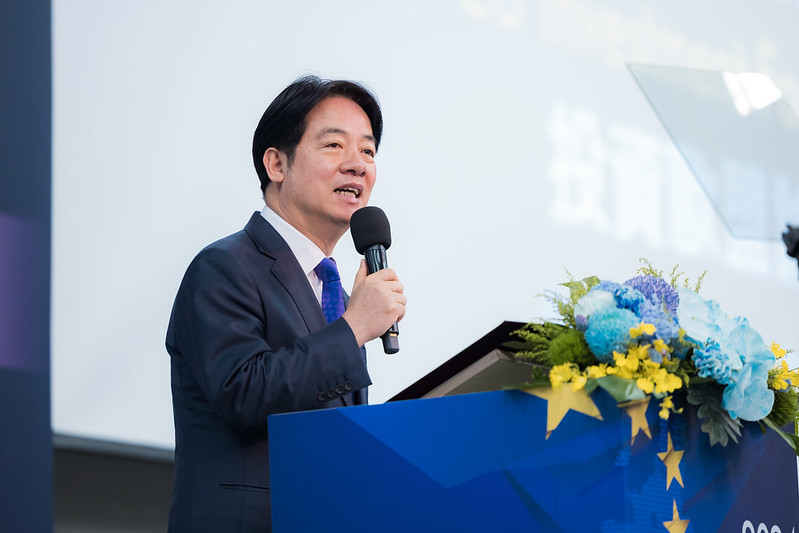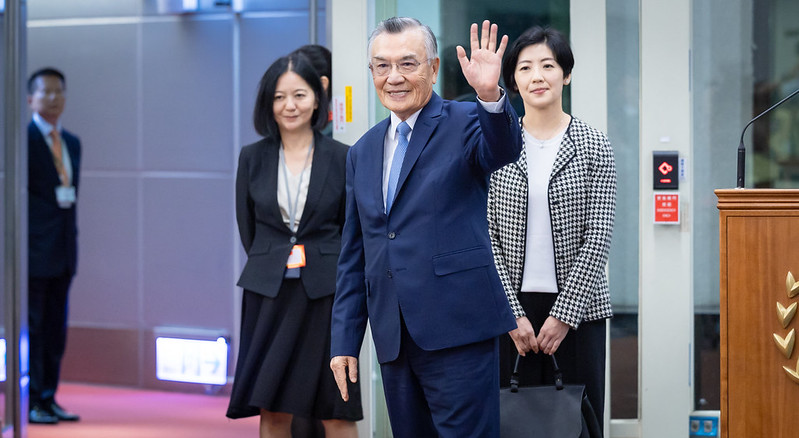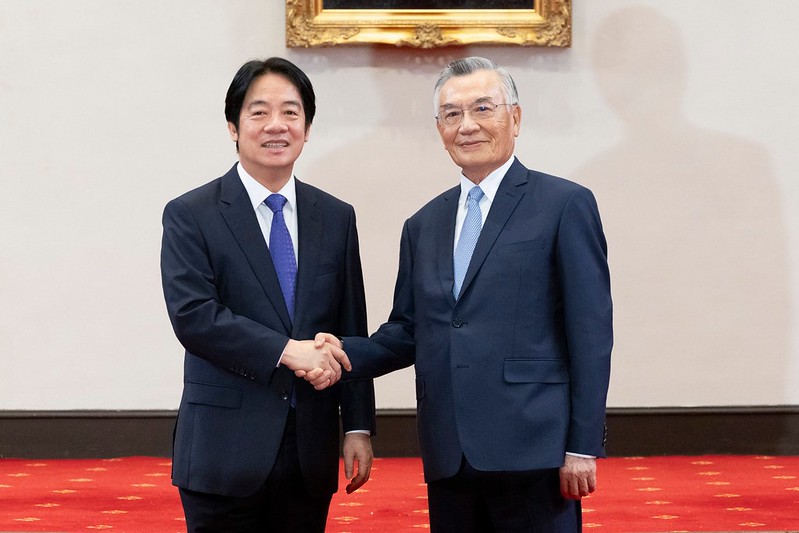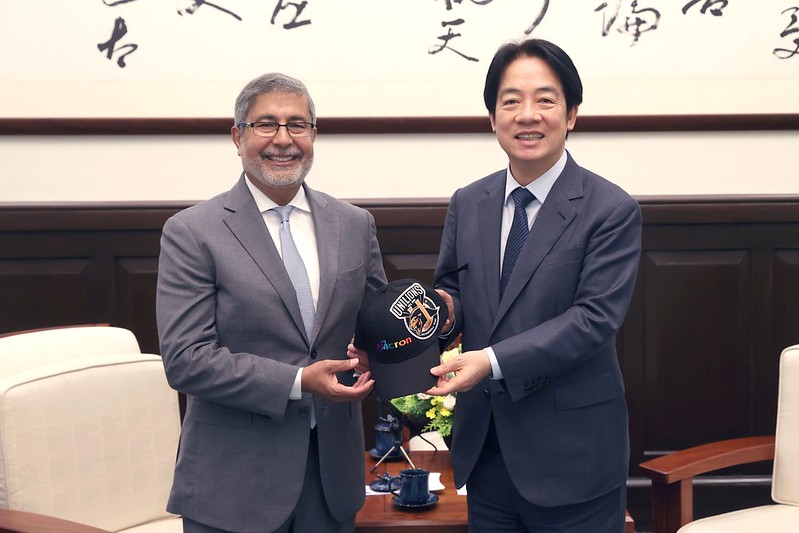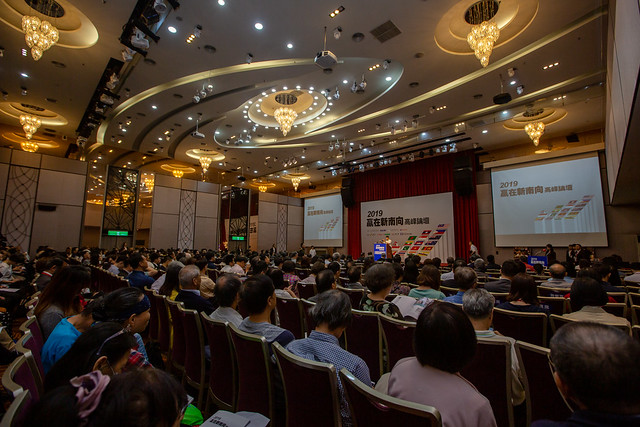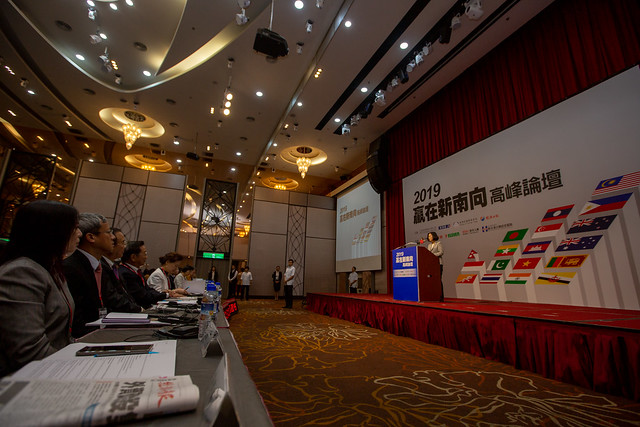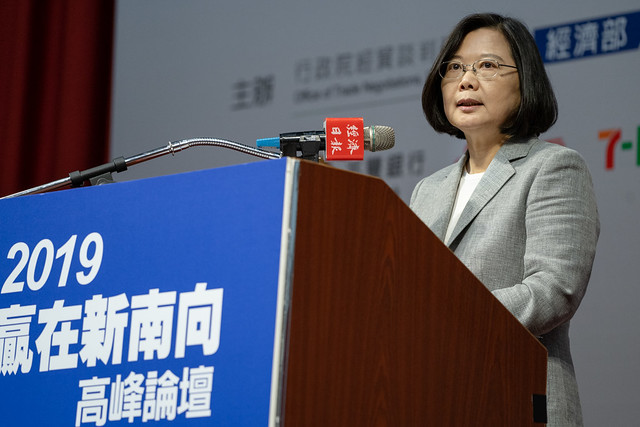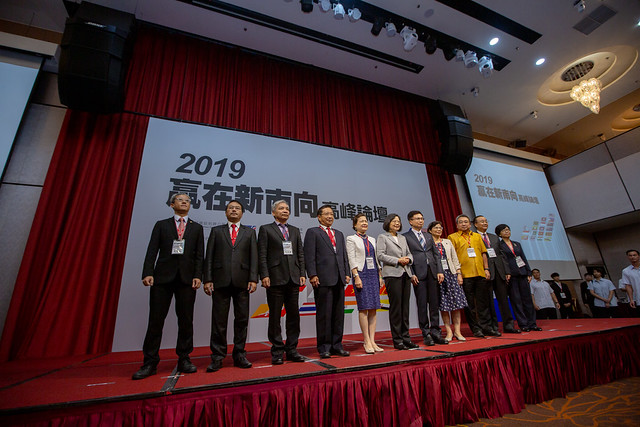News & activities
 News releases
News releases
On the morning of May 30, President Tsai Ing-wen attended the Economic Daily News (EDN) 2019 summit conference on winning with the New Southbound Policy. In her remarks, the president outlined the exchanges and cooperation that have been conducted with countries targeted by Taiwan's New Southbound Policy ("New Southbound countries") in such areas as commerce, medicine, public health, agriculture, and people-to-people ties. She also emphasized that the government, building on its track record of success, will continue to ratchet up efforts to implement the New Southbound Policy and help Taiwan play a more critical and decisive role in Asia's economic development.
The president began her remarks by thanking the EDN for holding the 2019 summit conference, bringing elites from many different fields together to help promote the New Southbound Policy through brainstorming, spurring new thinking and momentum. In fact, said the president, in the three years since she took office and began pursuing the New Southbound Policy, international political and economic conditions have changed dramatically. In both geopolitical and economic terms, New Southbound countries have grown increasingly important.
President Tsai pointed out that this has prompted the United States, Japan, the European Union, Korea, and India to adopt new regional strategies, clearly attesting to the farsightedness of our New Southbound Policy, and our important role as policy pioneers.
The president further pointed out that the New Southbound Policy is a new model for economic development, and an important strategy for reducing reliance on any single market. We hope, she said, to establish wide-ranging and diverse strategic partnerships with New Southbound countries by engaging in exchanges and cooperation in commerce, industry, science and technology, culture, tourism, and education.
Over the past three years, said the president, we have continuously promoted a wide range of cooperation in such areas as commerce, medicine, public health, and agriculture, and we have actively pushed our Official Development Assistance program and pursued cooperation on disaster preparedness. The results of our efforts are steadily coming to fruition, and winning positive responses and recognition from other countries.
In the area of economic and trade ties, the president said that the value of two-way trade last year between Taiwan and New Southbound countries exceeded US$110 billion, up 22% from 2016. Investments in Taiwan by New Southbound countries were also up by about 60% from 2016.
President Tsai further stated that Taiwan has successfully updated bilateral foreign investment promotion and protection agreements with the Philippines and India, safeguarding the interests of Taiwanese firms that have invested in those countries. The 2017 operating revenues for the 1,000 biggest Taiwanese enterprises in the New Southbound countries came to almost NT$3.6 trillion, and their combined profits topped NT$100 billion. Among these firms, 95 were established or created through M&A deals after the New Southbound Policy was adopted.
In agriculture, President Tsai pointed out that Taiwan has set up cooperation demonstration zones with Indonesia, the Philippines, and Vietnam. These zones have facilitated the sharing of Taiwan's high-quality agricultural technologies, and have successfully spurred exports of related goods and equipment.
In the area of medicine and public health, the president stated that Taiwan cooperates with New Southbound countries to promote medical personnel training, and has established cooperative endeavors in the healthcare industry as well as the field of communicable disease prevention and control. In addition to enhancing the international image of Taiwan's healthcare industry, such cooperation has also generated business opportunities. Last year, more than 150,000 patients from New Southbound countries travelled to Taiwan to receive medical treatment. This marked an increase of 50% from the previous year, and accounted for nearly 40% of all those coming from overseas to receive medical treatment.
The president emphasized that the core of the New Southbound Policy is its focus on people, and in the area of people-to-people ties, we have been especially successful. The number of travelers arriving from New Southbound countries rose by almost 60% from 910,000 in 2016 to 1.44 million in 2018. And over that same period, the number of students from New Southbound countries studying in Taiwan rose by over 60%, from 32,000 to 52,000.
In addition, said the president, Taiwan holds forums and other periodic activities that provide regional dialogue platforms where experts can come from around the world to discuss topics pertaining to industry, science and technology, medicine, and public health. For example, the president took part in last year's 2nd annual Yushan Forum, which attracted 51 international participants from 17 countries, including two Nobel Peace Prize laureates. Such exchanges, she said, help Taiwan integrate more closely with the international community while also expanding our influence.
President Tsai also emphasized that substantive accomplishments such as these show that so long as Taiwan has a clear strategy and makes tangible efforts, its New Southbound Policy will pack a real punch. For the past three years, both government and civil society have made an all-out effort to win with the New Southbound Policy, which is the reason we are beginning to see preliminary successes.
The president mentioned that, due to the escalation of the US-China trade conflict, many overseas Taiwanese firms have responded positively to the Taiwan government's policies, not only by returning to invest in Taiwan, but also by evaluating the possibility of building up a presence in the New Southbound countries.
President Tsai emphasized that we now have an important opportunity to redefine Taiwan's role in the regional economy, and to rebuild the industry value chains formed by offshore Taiwanese firms. The government, building on its track record of success, will continue to ratchet up efforts to implement the New Southbound Policy, help companies find new direction, and enable Taiwan to play a more critical and decisive role in Asia's economic development.
In closing, President Tsai said that many experts at this summit conference would be sharing their experiences working in New Southbound countries, and exploring related topics alongside everyone in attendance. The valuable insights of these experts would serve as important reference for the government in its efforts to implement policy. The president again conveyed her gratitude to the EDN for its hard work, thanked everyone for their participation, and offered her best wishes for a successful event.
Among those in attendance were Economic Affairs Deputy Minister Mei-Hua Wang (王美花), EDN President Huang Su-juan (黃素娟), Chairman James C. F. Huang (黃志芳) of the Taiwan External Trade Development Council, Shin Kong Hospital President Sheng-Mao Hou (侯勝茂), and Mega International Commercial Bank Chairman Chao-Shun Chang (張兆順).

